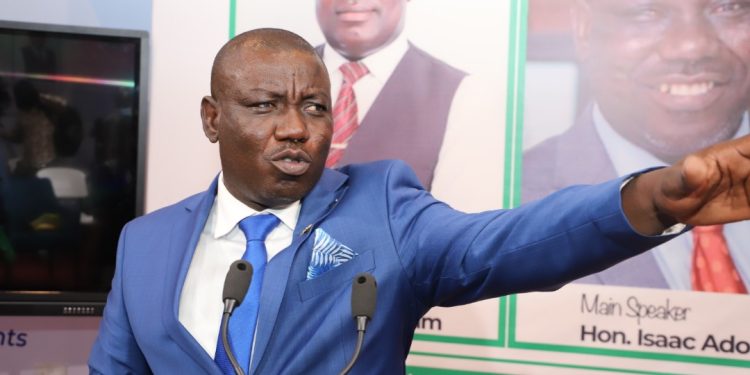The Chairman of Parliament’s Finance Committee and Member of Parliament for Bolgatanga Central, Hon. Isaac Adongo, has rejected claims by the New Patriotic Party (NPP) that the current economic stability in Ghana is a result of policies initiated by the previous administration.
Adongo attributed the improvements in macroeconomic indicators to President John Dramani Mahama’s “reset agenda” and prudent fiscal management since assuming office in January 2025.
He emphasized that the NPP’s assertion—particularly by former Finance Minister Dr. Mohammed Amin Adam and Vice President Dr. Mahamudu Bawumia—that gold reserves built under their watch are now stabilizing the cedi, is misleading.
“If reserves alone could stabilize the cedi, why was it hovering around GH¢17 to the dollar in 2024 under their watch, when they had those same reserves?” Adongo questioned.
According to him, the sudden U-turn to claim credit while previously blaming external factors is not only dishonest but ignores the economic mismanagement that led us here.
In a statement, the Chairman stated that the ongoing macroeconomic stability is “the result of deliberate policy interventions under President Mahama,” including strong fiscal consolidation, a tightened monetary policy, and key structural reforms.
Stressing current economic achievements, Adongo noted that reduced government borrowing, easing of interest rates, and increased investor confidence are all signs of Mahama’s fiscal credibility.
“We have moved from opaque, shady borrowing tactics to a regime of transparency and discipline. This has freed up credit for the private sector and reduced the crowding-out effect,” he said.
He praised the launch of the Code of Conduct for government appointees as a major confidence booster for investors and the public alike.
Hon. Adongo also pointed to improved export performance, particularly in the gold and cocoa sectors, and the successful implementation of the GoldBod program, which he said has helped curb gold smuggling and increased formal sector production.
According to him, gold exports are surging not because of old reserves but because of decisive interventions that have made formal trading more attractive and trustworthy.
The Bank of Ghana, according to Adongo, has also played a crucial role by enhancing transparency in its foreign exchange operations and policy decisions. This, combined with international validation, has led to positive revisions of Ghana’s sovereign risk rating.
“S&P’s upgrade of Ghana from ‘SD’ to ‘CCC+’ is no accident. It’s a clear recognition of the Mahama government’s sound economic stewardship,” Adongo noted.
Adongo stressed that the yield curve is normalizing and inflation is easing, both of which he credited to the administration’s coordinated monetary and fiscal strategies.
These, he said, are not abstract metrics but are beginning to reflect in real terms in the lives of ordinary Ghanaians—just as President Mahama promised.
Adongo issued a pointed critique of the NPP’s tendency to shirk responsibility in times of crisis and claim credit in times of progress.
According to him, leadership is the cause and all other things are effects.
“President Mahama is delivering on his pledge to the Ghanaian people, and no amount of revisionist narrative from the NPP will erase their record of haircuts, obnoxious taxes, and economic hardship,” he stressed.





















